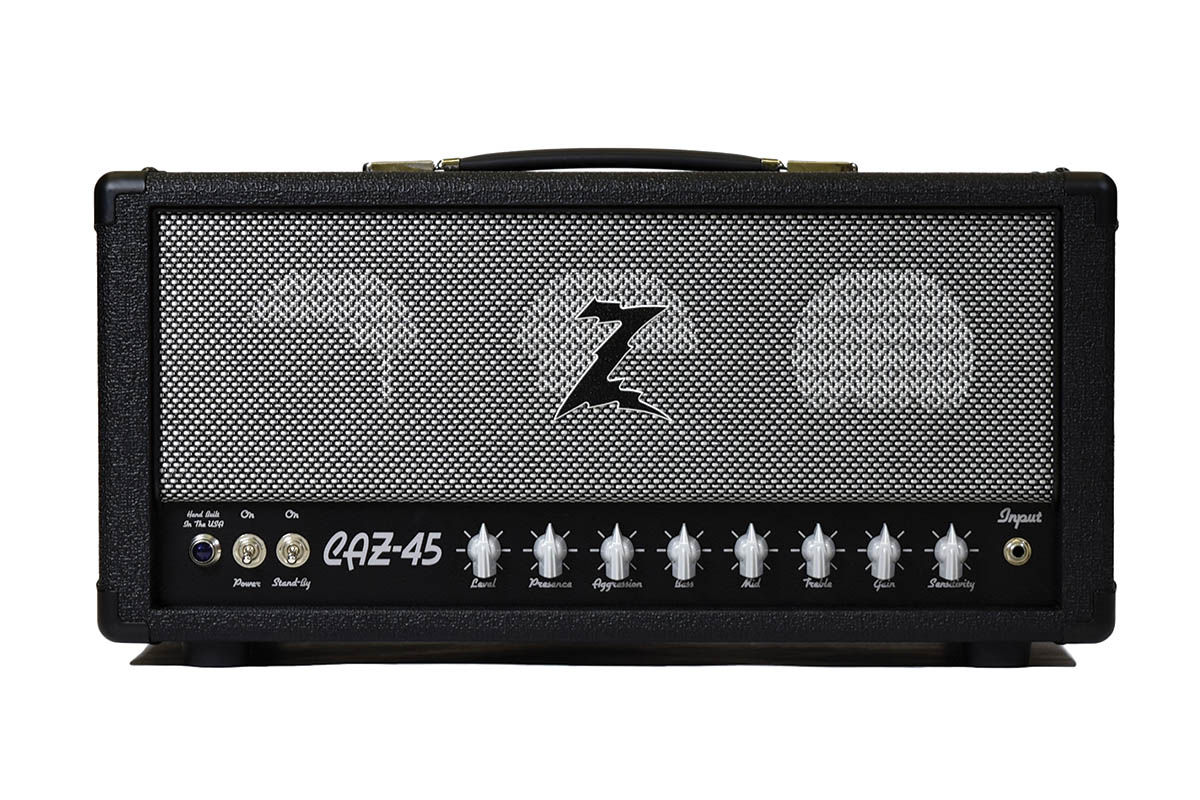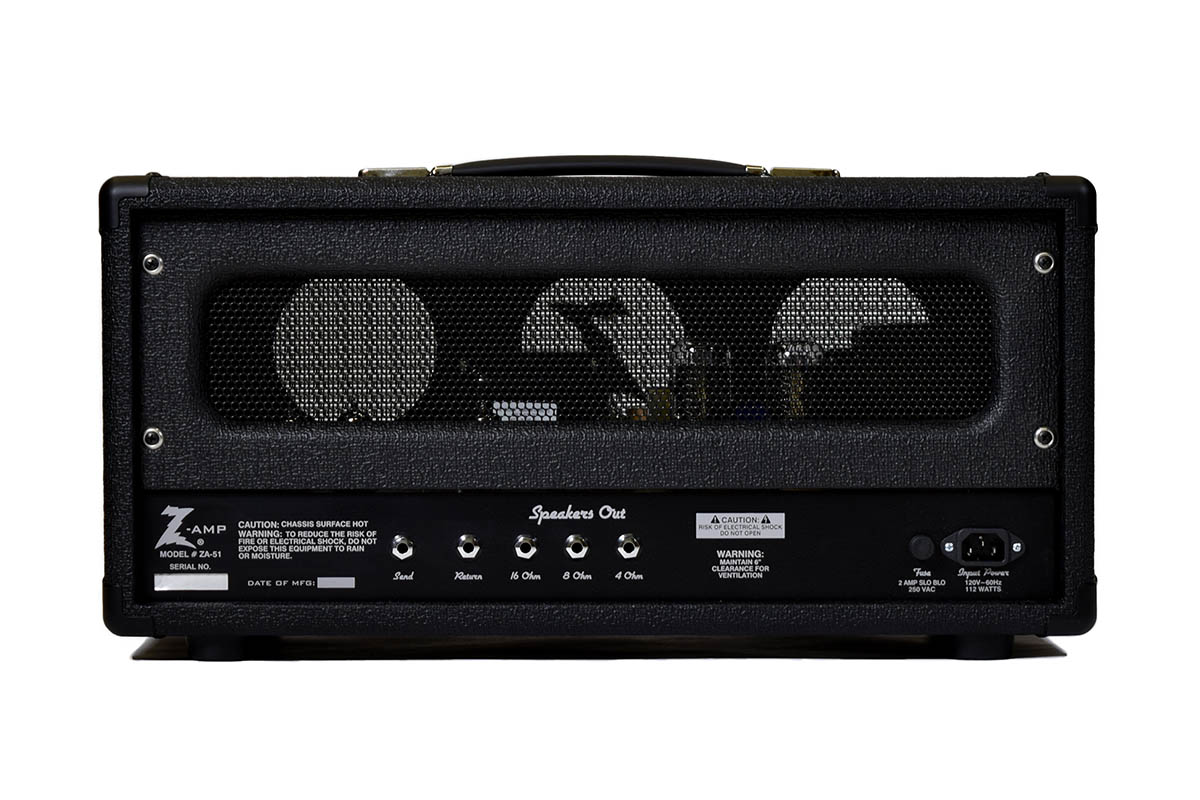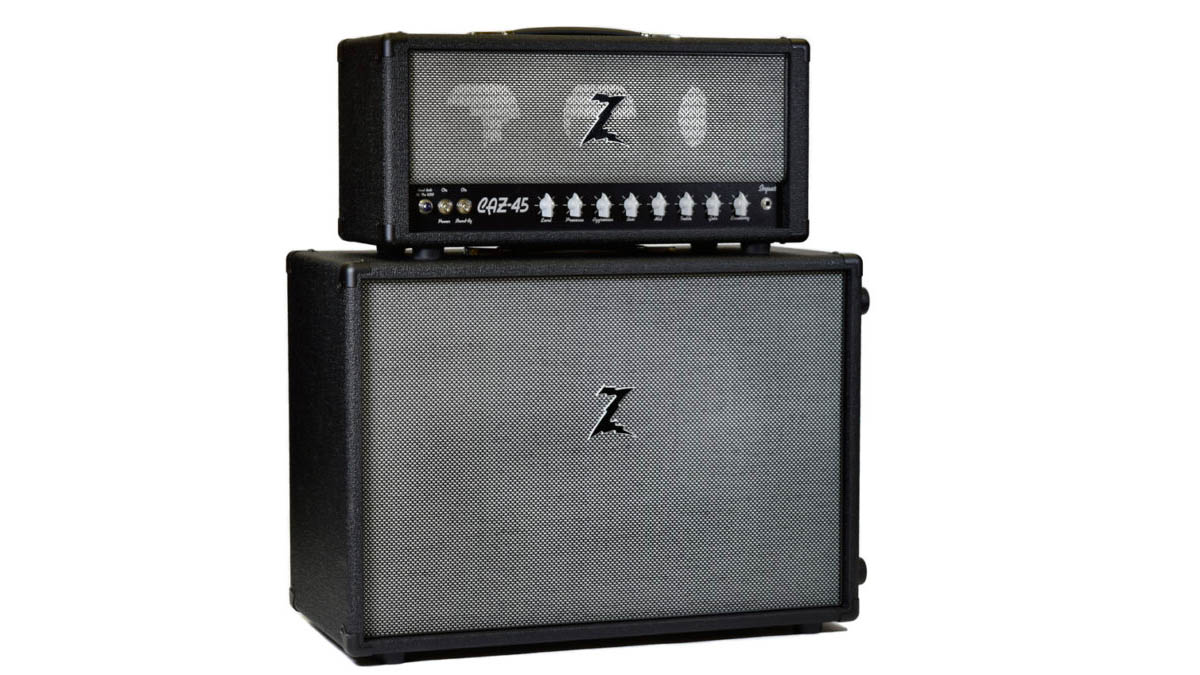GuitarPlayer Verdict
Rock and metal players looking for a dynamic alternative to the tried and tested high-gain options will find a lot to like about Dr. Z's CAZ-45. It balances gain and power with detail and a touch-sensitive performance, and is packed with addictive tones.
Pros
- +
Excellent build quality.
- +
Thick and articulate tones.
- +
Great playing dynamics.
Cons
- -
No foot-switchable rhythm and lead channels, but that’s not the intention here.
You can trust Guitar Player.
For all the guitar amplifiers Mike Zaite has created during his more than three decades in the business, the Dr. Z Amplification founder has never delivered a full-on modern, high-gain amp. The CAZ-45 is here to change that.
This 45-watt, all-tube monster is a collaboration between Zaite and Alan Phillips of Carol-Ann Amplifiers, who recently stepped away from the game to pursue a career in industrial automation. It’s an original, ground-up design from Phillips’ drawing board, with contributions from Z’s lab, manufactured in full-bore Dr. Z handwired style and primed to rock large.
The CAZ-45 sits halfway between an old-school, single-channel lead amp that responds well to your guitar’s volume controls for clean to crunch to overdrive, and a modern-voiced, high-gain fury that slathers gain stage upon gain stage for unholy levels of sizzle and sustain.
Phillips says the amp delivers unprecedented parallels of the former, however, and needs no channel switching as a result. The CAZ-45 has a single input and controls for sensitivity, gain, treble, mid, bass, aggression, presence, and level.
As straightforward as most of these appear, several warrant some explaining. Sensitivity can help to match higher- and lower-output pickups to the amp’s optimal input strength while acting as an overall “input hotness” control.
The tone stack is not the traditional Fender/Marshall/Vox cathode-follower stage that it might appear but a custom EQ section carefully designed to maintain tight and full lows, a rich and thick midrange, and a clear, unfizzy top end. The aggression control “adds bite and growl to your distorted tone,” Zaite says.
Winding it clockwise adds some apparent gain, and lends tightness and clarity to the distortion, helping to keep it punchy and aggressive, rather than brown and vintagey, and thus aiding dynamics as much as the overdriven sound.
All the latest guitar news, interviews, lessons, reviews, deals and more, direct to your inbox!
As for the level control, Dr. Z tells us it’s not so much a traditional master-volume control as a “volume scaler” that accurately reduces the output level of the amp without changing the tone.

The back panel reveals the send and return jacks for Phillips’ tube-driven buffered effects loop, alongside four-, eight-, and 16-ohm speaker outputs. Three 12AX7s take preamp and phase-inverter duties, an odd 12DW7 preamp tube (essentially half a 12AU7 and half a 12AX7 in the same bottle) drives the loop, and a pair of robust 6L6STRs generate the 45 watts of firepower.
Unusually for this type of amp, those output tubes are configured in cathode bias, which not only makes replacement easy, with no rebiasing required, but also helps generate somewhat sweeter and more saturated spectrum harmonic overtones when the amp starts clipping, adding more character to its voice.
The tone sounds and feels entirely contemporary, not a redux of the Marshall Master Models, Trainwrecks, Boogie Mark 1, or any other amp that functions in that fashion
The head measures 22.75 by 9.75 by 10 inches, weighs 35 pounds, and is dressed in businesslike black Tolex with a salt-and-pepper grille, a black control panel, and light-gray chicken-head knobs. Inside, the good stuff is housed in Dr. Z’s aircraft-grade aluminum chassis.
It includes a fully hand-wired circuit that uses top-shelf components and a particularly robust, oversized output transformer designed for Dr. Z by the late Trainwreck amp guru Ken Fischer, along with a U.S.-made power transformer and choke.
I tested the CAZ-45 with a Gibson Les Paul 1958 Reissue and a Fender Stratocaster 1954 Reissue into an open-back 2x12 cab with Scumback M75 and J75 speakers, as well as a Mesa Cab Clone IR+ with studio monitors. It proved its premise with a truckload of scorching, dynamic tones.

On the one hand, this is old-school high-gain: Crank it up to blistering lead levels and dial between clean, crunch, and all-out face-melting shred via your guitar’s volume control.
On the other, the tone sounds and feels entirely contemporary, not a redux of the Marshall Master Models, Trainwrecks, Boogie Mark 1, or any other amp that functions in that fashion.
Call it a marriage of richness, smoothness, and clarity, with a tactile body that pushes the mids forward enough to get heard in the mix, without anything close to the hump that other circuits deliver (although the tone controls will hump or scoop it as necessary).
The sensitivity and aggression controls take the amp from clean or edge-of-breakup bluesy succulence to metal-capable mayhem, and they partner with the gain knob to provide three very sensitive gain-setting – and therefore, distortion-cranking – controls.
Not being a certified shred monster, my favorite setting for these was around 10 o’clock each, with gain and level both at noon and EQs to taste. This yielded a big, thick, articulate, and extremely dynamic lead tone that was bouncy, chewy, and very more-ish.
High settings of the sensitivity control required a little balancing elsewhere to dial out the high-end fizz – particularly evident with the level control at lower settings – but that’s to be expected. Otherwise, the level itself proved more balanced and unobtrusive than most traditional master volume controls, and the effects loop worked well with a selection of delay and reverb units.
The CAZ-45 really is a marriage of many of the best qualities of two extremely able tube-amp designers and manufacturers, producing a rock-forward amp that should please countless players while earning an Editors’ Pick Award in the process.
Specifications
- PRICE: $2,499 street
- CHANNELS: 1
- CONTROLS: Sensitivity, gain, treble, mid, bass, aggression, presence, level
- POWER: 45 watts
- TUBES: Three 12AX7 and one 12DW7 preamp tubes, two 6L6STR output tubes
- EXTRAS: Tube-buffered FX loop with send and return, 4Ω, 8Ω and 16Ω speaker outs
- WEIGHT: 35 lbs
- BUILT: Assembled in USA
- CONTACT: Dr. Z Amplification
Dave Hunter is a writer and consulting editor for Guitar Player magazine. His prolific output as author includes Fender 75 Years, The Guitar Amp Handbook, The British Amp Invasion, Ultimate Star Guitars, Guitar Effects Pedals, The Guitar Pickup Handbook, The Fender Telecaster and several other titles. Hunter is a former editor of The Guitar Magazine (UK), and a contributor to Vintage Guitar, Premier Guitar, The Connoisseur and other publications. A contributing essayist to the United States Library of Congress National Recording Preservation Board’s Permanent Archive, he lives in Kittery, ME, with his wife and their two children and fronts the bands A Different Engine and The Stereo Field.


